Bibby Stockholm: Migrants could be back in weeks, says minister
- Published
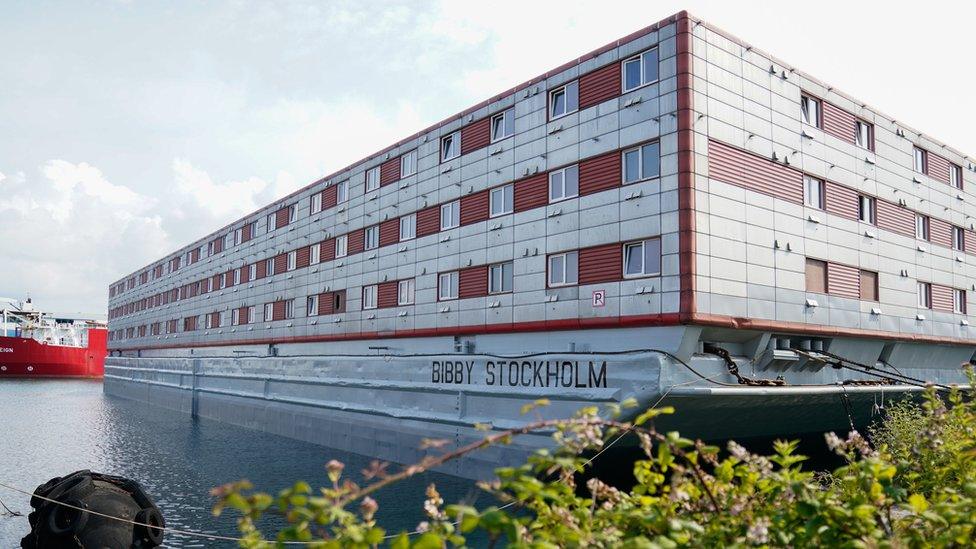
The Home Office said it had followed all health protocols and advice
Asylum seekers could return to a migrant barge "within weeks" if safety tests show no cause for concern, the immigration minister has said.
The 39 men were briefly housed on the Bibby Stockholm, berthed in Portland Port, Dorset, before traces of Legionella bacteria were found.
They were taken off and moved to a hotel while tests were being conducted on the vessel's water system.
Robert Jenrick said the removal of the migrants had been "precautionary".
Responding to a question in the Commons from Richard Drax, the Conservative MP for South Dorset, he said: "It was very unfortunate that migrants had to be moved off the barge over the summer. We deeply regret that. We did take a very precautionary approach."
The minister said "definitive answers" to the subsequent tests were expected "very shortly".
He added: "Assuming that they show no signs of Legionella or indeed any other bacteria or cause for concern, then we will move people back on to the boat as soon as possible, I think we can expect that within weeks."
Watch: Inside the housing barge after first asylum seekers board
In an open letter last month, some of the men expressed "shock and fear" over the discovery of Legionella and said they had faced "isolation and loneliness" since being moved off.
The Home Office said at the time it was following all health protocols and advice.
The barge is a flagship part of the government's plan to cut the cost of housing asylum seekers and deter dangerous Channel crossings by migrants.
It previously said there were about 51,000 asylum seekers currently in hotels across the UK - having gone up by 3,000 since the end of March - costing the taxpayer about £6m a day.
The government intends to house about 500 men on the vessel while they await the outcome of their asylum applications.
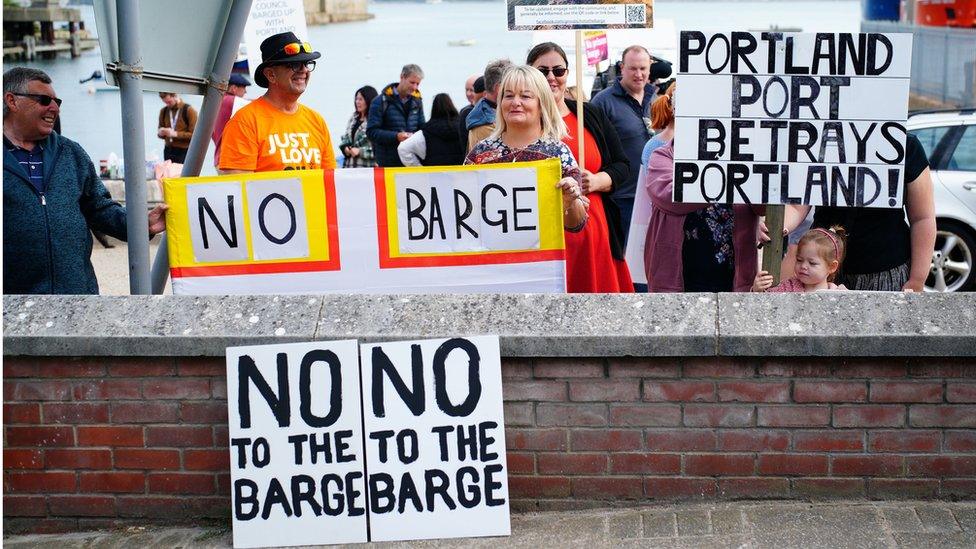
There has been considerable local opposition to the barge coming to Portland
The 222-room, three-storey barge, chartered by the government for 18 months, arrived at the port in July.
It was previously used to accommodate homeless people and asylum seekers in Germany and the Netherlands.
The Home Office previously said "using vessels as alternative accommodation, like our European neighbours are already doing, will be better value for British taxpayers and more manageable for communities than costly hotels".
However, human rights group Amnesty International compared the Bibby Stockholm to "prison hulks from the Victorian era", saying it was an "utterly shameful way to house people who've fled terror, conflict and persecution".
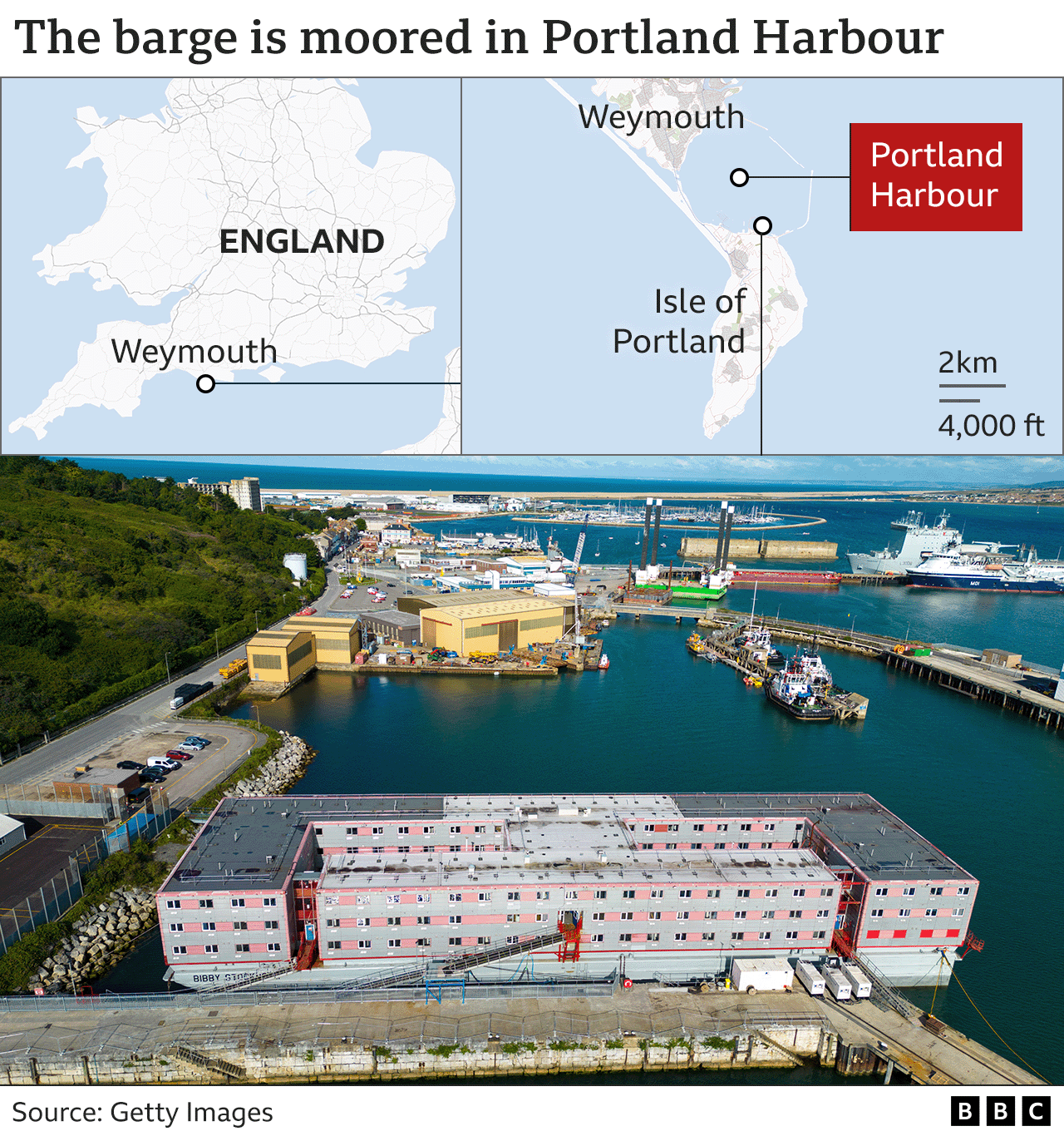

Follow BBC South on Facebook, external, Twitter, external, or Instagram, external. Send your story ideas to south.newsonline@bbc.co.uk, external.
Related topics
- Published25 August 2023

- Published23 August 2023

- Published9 August 2023

- Published8 August 2023
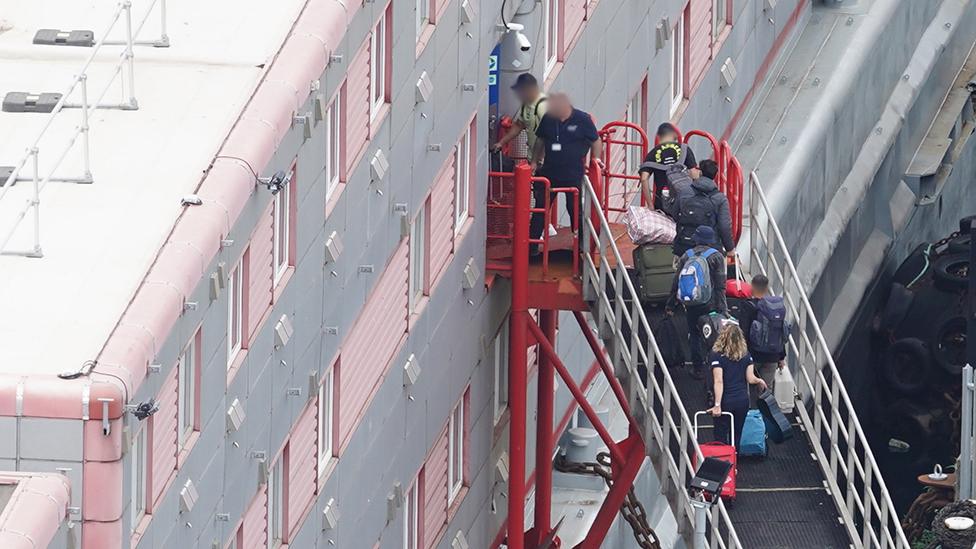
- Published17 July 2023
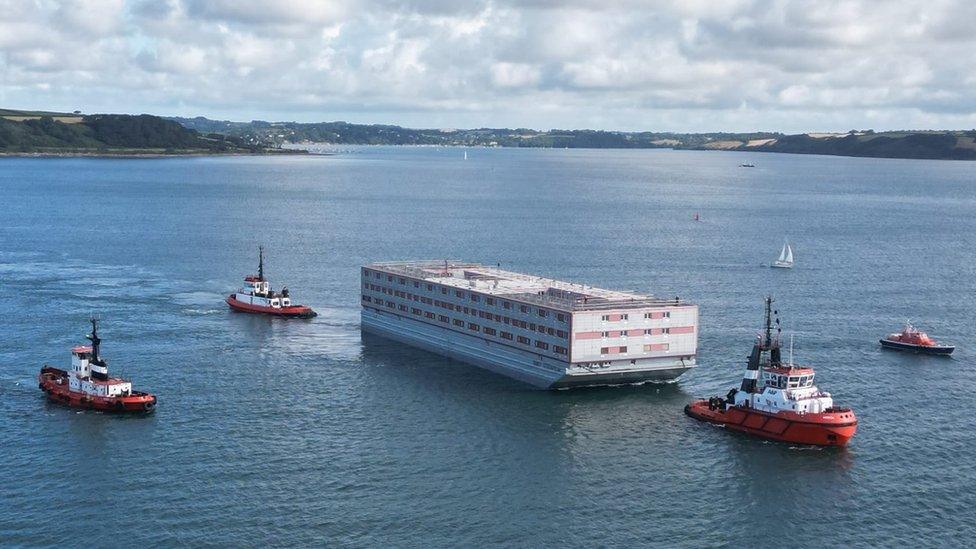
- Published4 June 2023

- Published24 May 2023
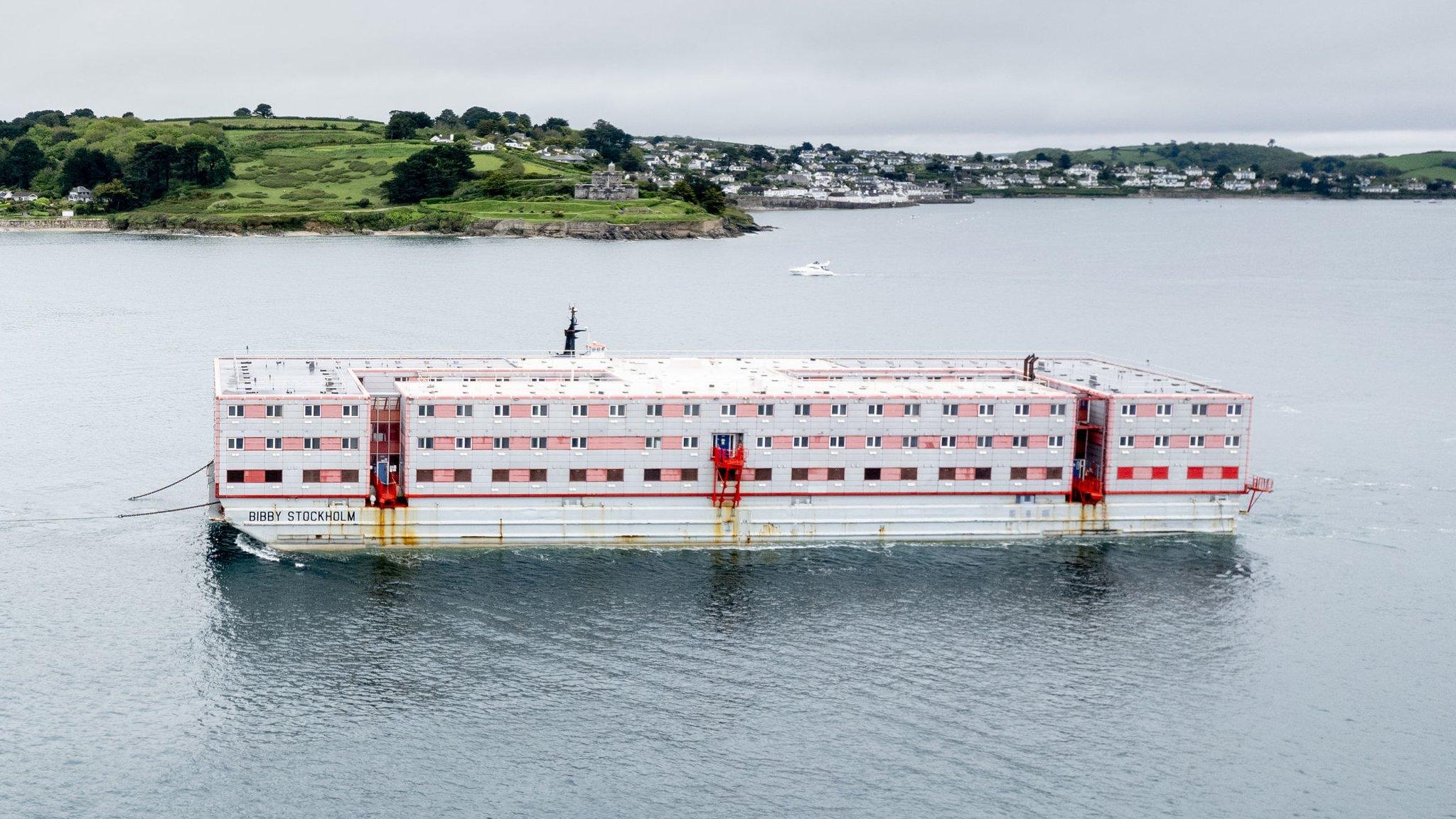
- Published18 May 2023
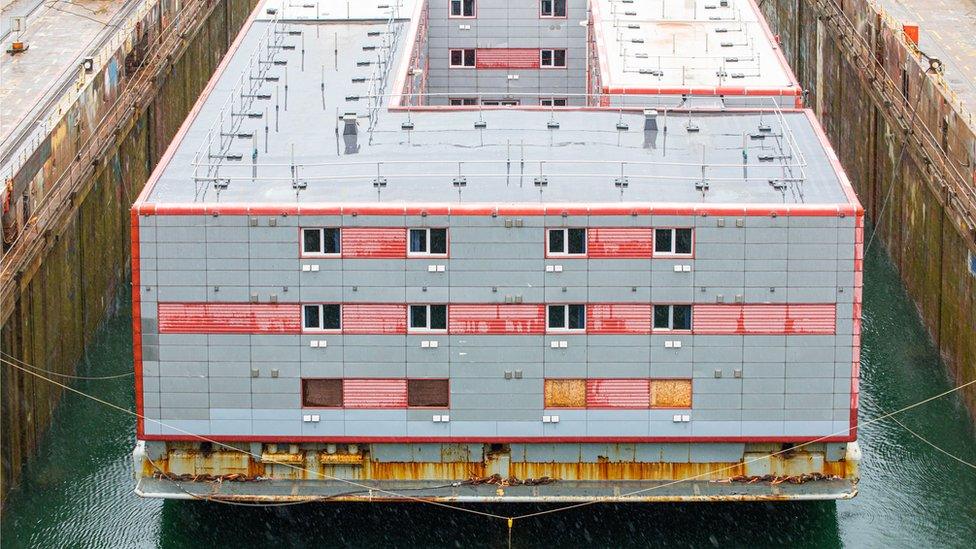
- Published13 May 2023
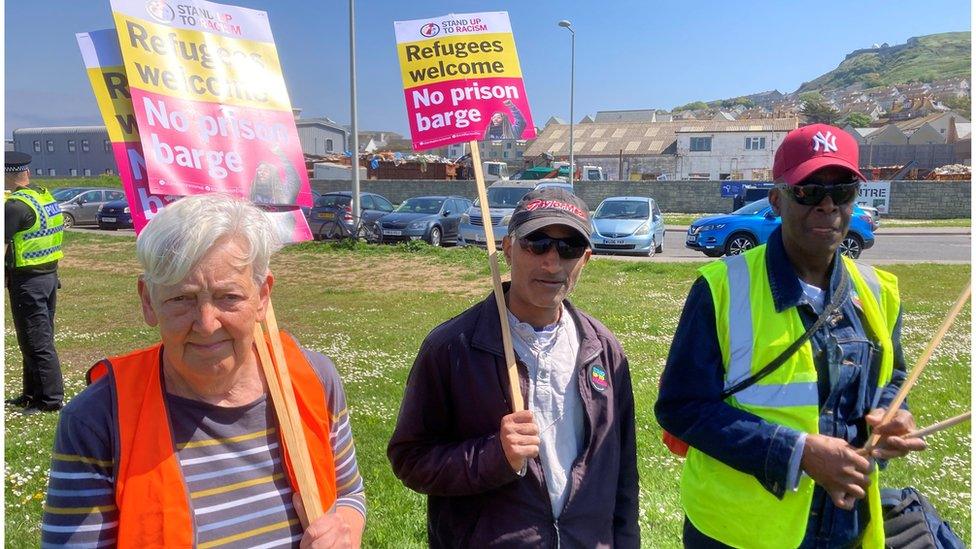
- Published27 April 2023
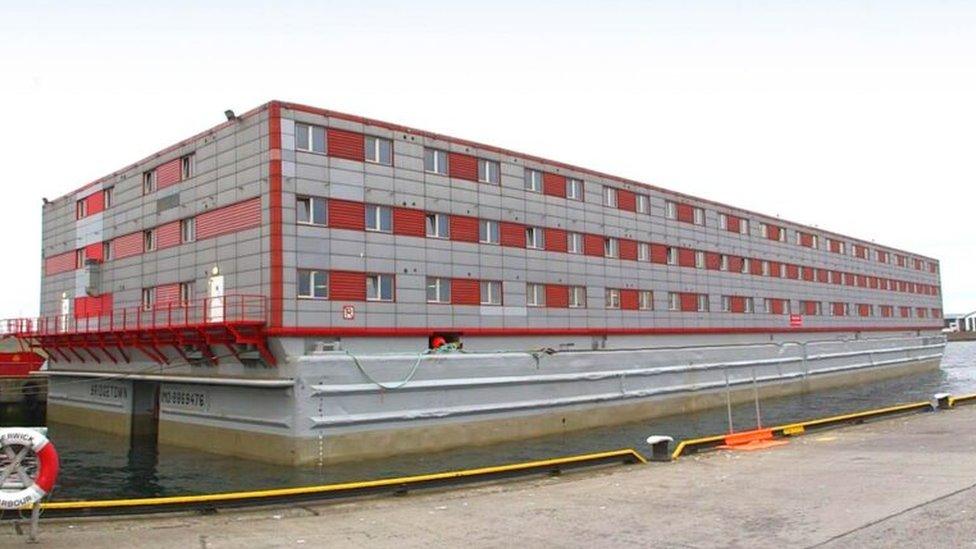
- Published7 April 2023

- Published5 April 2023
